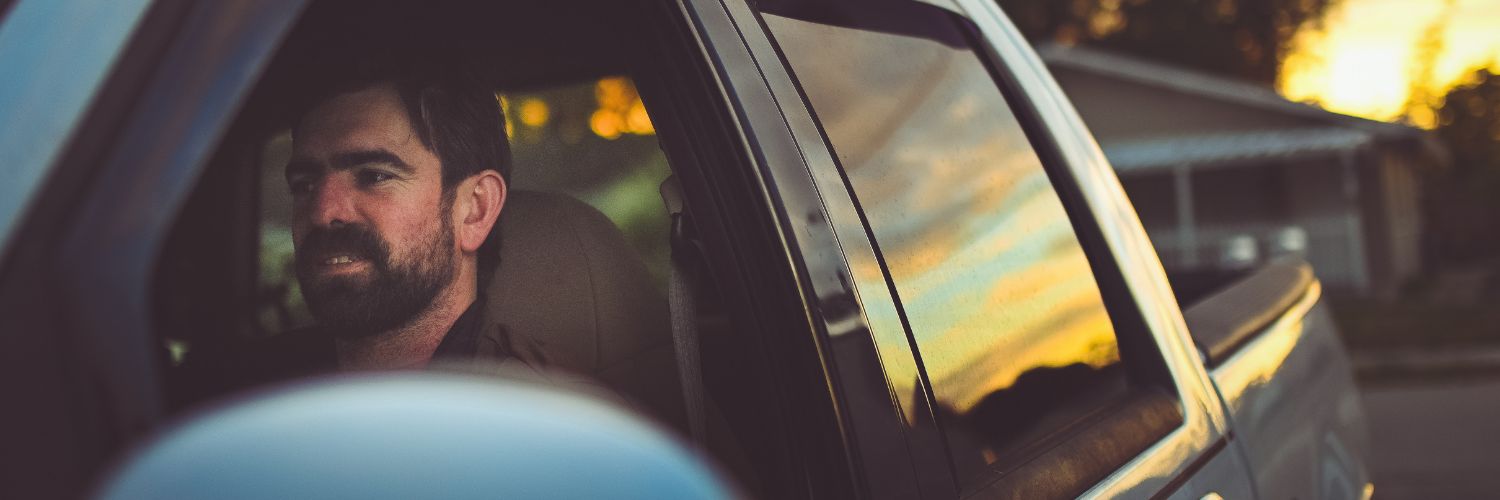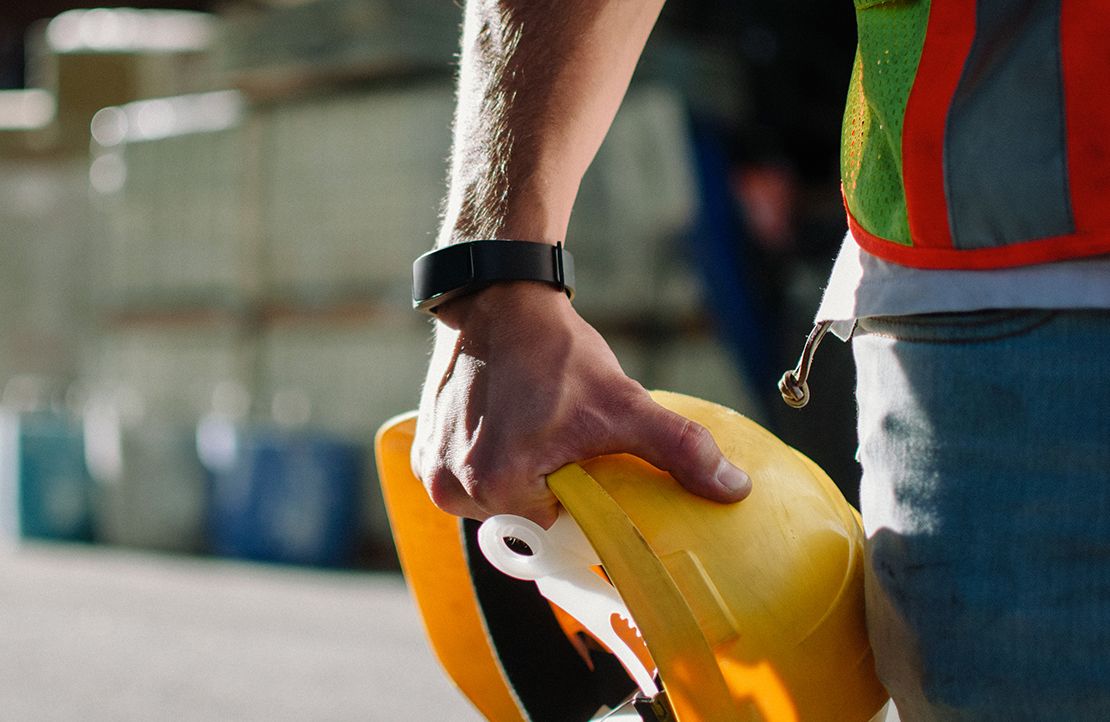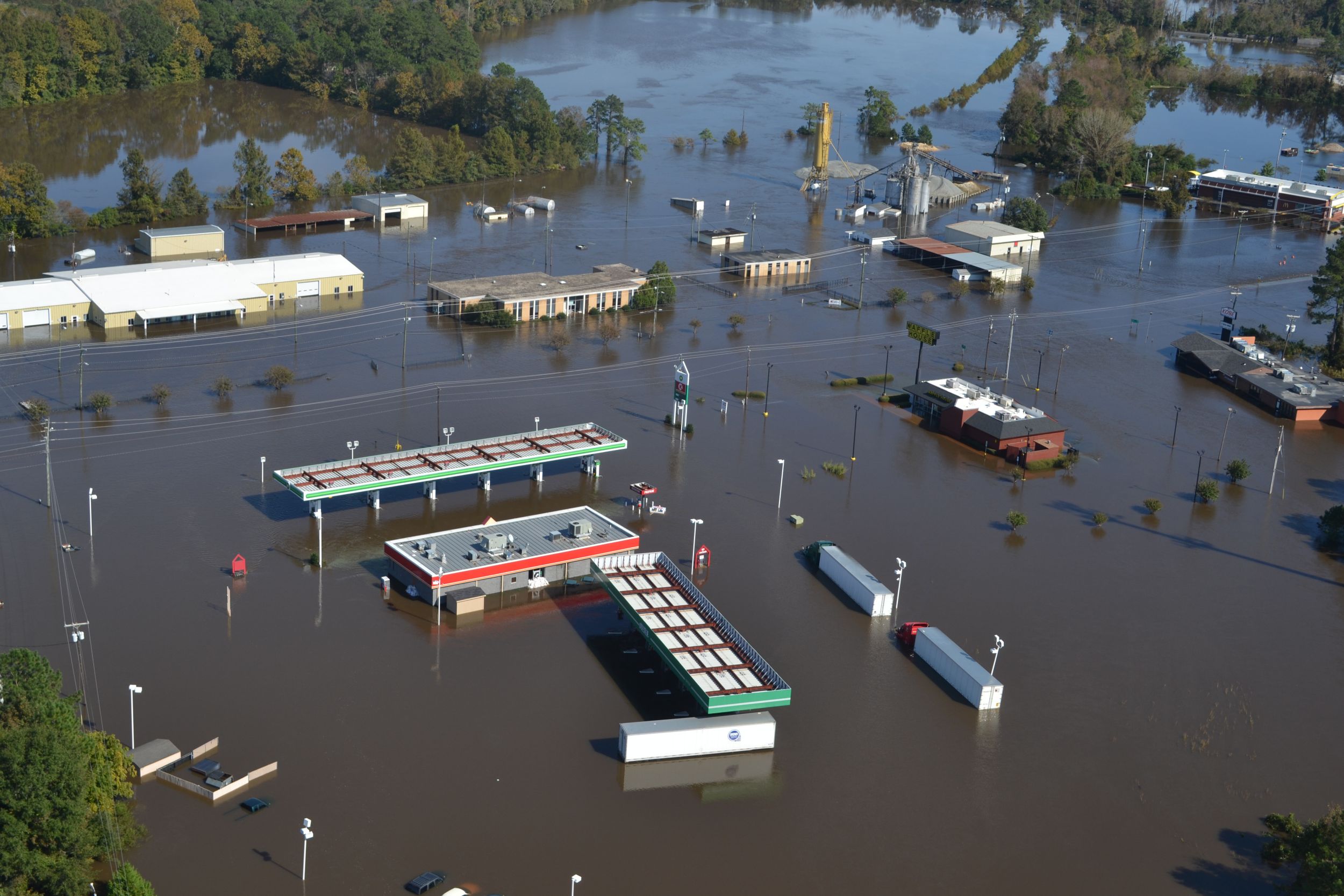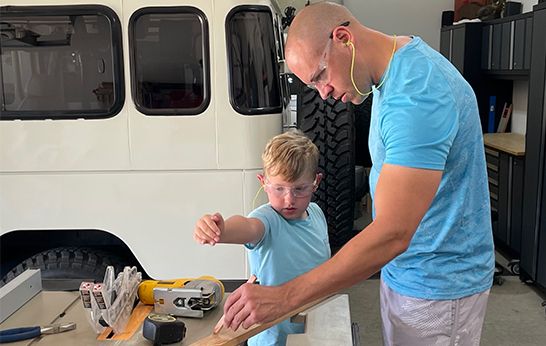

Sign In
Welcome! Sign In to personalize your Cat.com experience
If you already have an existing account with another Cat App, you can use the same account to sign in here
Register Now
One Account. All of Cat.
Your Caterpillar account is the single account you use to log in to select services and applications we offer. Shop for parts and machines online, manage your fleet, go mobile, and more.
Account Information
Site Settings
Security
Roadside Emergency Kits for Your Car: An Essential Checklist
Wondering how to make a roadside emergency kit? This checklist has the essentials you'll need to keep you safe on the road.
By Caterpillar | Posted: July 11, 2022
Being prepared with the right tools and safety gear is a critical step when you’re starting a work shift. It’s just as important for your next road trip. A roadside emergency car kit checklist can make sure you're prepared for vehicle hazards from mechanical problems and bad weather. Staying informed about tools and gear for emergencies is a great way to help you stay safe.
Why Every Vehicle Needs a Roadside Emergency Kit
Whether you use your car every day or just take a drive on occasion, there's always a chance you'll have an emergency when you're on the road. You might run into severe weather that stops your car in its tracks or have a breakdown while on a busy street. Vehicle emergency kits are essential for staying prepared and getting yourself out of a tricky situation.
When creating an emergency kit for your work or family vehicle, check the kit regularly and make sure your supplies are fully stocked. Whether you're preparing for a long commute, road trip, or hazardous weather, always double-check your kit before hitting the road.
14 Essentials for your Roadside Emergency Car Kit
Take a look at these essential tools to have in a roadside emergency kit and how you can use them:
- Jumper cables: If your battery dies, you can hook jumper cables to another car to give your car battery a boost. A set of clamps will connect to your battery, and another will connect to a charged battery. When the other car revs its engine, the cables will transfer energy to your car. Be sure to read the directions with the cables carefully to ensure you attach them correctly.
- Spare tire and car jack: When you get a flat tire, the car jack will hoist your car off the ground to help you replace your flat tire with the spare you keep in the vehicle. You'll also need a lug nut wrench to remove and fasten the bolts.
- Tire sealant and inflator: Some holes in your tire can be sealed for a short drive. Apply the product to the tire so the escaping air can bring the sealant to the tear. Use the inflator to give it air for your trip to the nearest tire shop.
- Tire pressure gauge: Low tire pressure can reduce traction and give you trouble in severe weather. Insert the gauge into the valve stem to get a reading after refilling or losing air during colder months.
- Multitool/Screwdriver: Random car problems like blown fuses can require miscellaneous tools for a quick repair.
- Reflective vest: If you're stranded on the side of the road at night, a reflective vest will alert oncoming traffic of your presence.
- Reflective triangles: Set these up around your car to let oncoming traffic and tow truck drivers know that you're stranded.
- Road flares: Flares are yet another way to signal where you are. Strike the end of the flare with the cap and set it in a standing position near your vehicle.
- Flashlight and spare batteries: Whether you're stranded at night or need to do some work under the hood, a flashlight will provide the light you need.
- Car charger: You'll need a charged phone for emergencies, so keep one of these on hand.
- Nonperishable food and bottled water: If you're sitting for a long time, nuts, granola bars, and peanut butter will stay fresh in your car. Stay hydrated with bottled water.
- First aid kit: Pack antiseptic, bandages, and anti-inflammatories to respond to injuries.
- Motor oil and coolant: If your vehicle develops a leak, you can run out of motor oil or coolant without warning. Having them on hand will help you respond and keep moving until you can have your vehicle repaired.
- Winter weather items: Snow scrapers will prepare you for heavy ice and snow. Blankets will keep you warm if you're stuck. Sand or kitty litter can give your wheels traction if you're somewhere icy.
Being prepared with an emergency kit is a great first step to being safe on the road. Find out the other steps to take before and during your next road trip.
Related Stories
-
Road Trip Safety: Steps Before and During Every Trip
Prepare to stay safe on your next road trip. Follow Caterpillar's road trip safety briefing and car safety tips. Learn more.
Learn More -
Flood Safety Tips: Before, During and After
If you live in a flood zone, it's critical to know how to prepare for a flood. Discover important flood safety tips, including how to evacuate your home safely.
Learn More -
Developing a Safety Culture at Home
The safest jobsites are those that have a strong safety culture, but what about when those employees go home? Hear from Caterpillar safety expert Justin Ganschow on why employee safety behavior at home matters.
Read Our Safety Culture Q&A -
Tips For Preparing a Business Disaster Plan
A natural disaster disrupts everything from your daily schedule to the ability of your business to continue operations. Read our tips for creating plans and preparing for the worst.
Learn More






